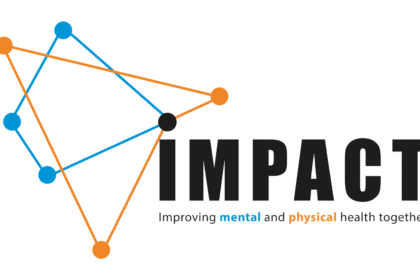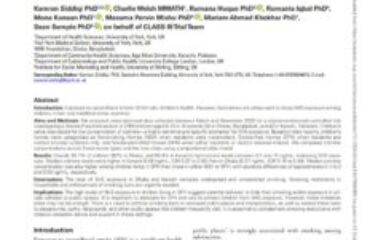
People with severe mental illness (SMI; i.e. schizophrenia, bipolar affective disorder and severe depression with psychosis) die on average 10-20 years earlier than the general population. Around 80% of deaths in people with SMI are due to preventable physical illnesses, most commonly cardio-metabolic diseases, respiratory disorders, and infectious diseases. Comorbidity of physical and mental illness is a major cause of global disease burden, affecting some of the poorest and most vulnerable people in low- and middle-income countries. The majority of evidence for these health inequalities has been generated in high-income countries, but a small number of studies from low- and middle-income countries (LMICs) also show a similar pattern of increased mortality for people with SMI.
The IMPACT group was formed with the following aims:
- To improve health and reduce deaths associated with diabetes, heart and lung diseases in people with severe mental ill health by addressing the most common health risk behaviours.
- To reduce depression and anxiety in people with chronic physical health conditions.
The study had a number of work packages. One of the work packages was ‘Investigating Mental and Physical Comorbidity: Survey in people with severe mental illness in South Asia’ (IMPACT-SMI study).
Primary aim of IMPACT SMI study is to determine the prevalence of physical disorders and lifestyle health-risk behaviours in people with SMI in South Asia.
Key findings
- Nine percent had diabetes, 16.1% hypertension, 36.8% were overweight or obese, and 46% had hypercholesterolemia.
- Most participants (84%) with diabetes, hypertension and hypercholesterolemia were previously undiagnosed; of those diagnosed only around half were receiving treatment.
- Fifty percent of men and 19.1% of women used tobacco;
- 59.3% and 84.1% did not meet WHO recommendations for physical activity and fruit and vegetable intake respectively.
- Compared with the general population (data from the WHO STEPS survey), people with SMI were more likely to have diabetes (Odds ratio (OR)=1.7), hypercholesterolemia (OR=2.5) and to be overweight or obese (OR=2.0) in the country. They were less likely to receive tobacco cessation (OR=0.11), and weight management (OR=0.48) advice than the general population.
Another study under IMPACT was “Behavioural activation for depression in people with non-communicable disease in low- and middle-income countries in South Asia (BEACON)” The rising burden of depression and non-communicable disease multimorbidity is an increasing global challenge, largely neglected by healthcare services, particularly in low- and middle-income countries (LMIC). Co-existence of depression and chronic physical disease is common and worsens outcomes for both the mental and physical disorder.



